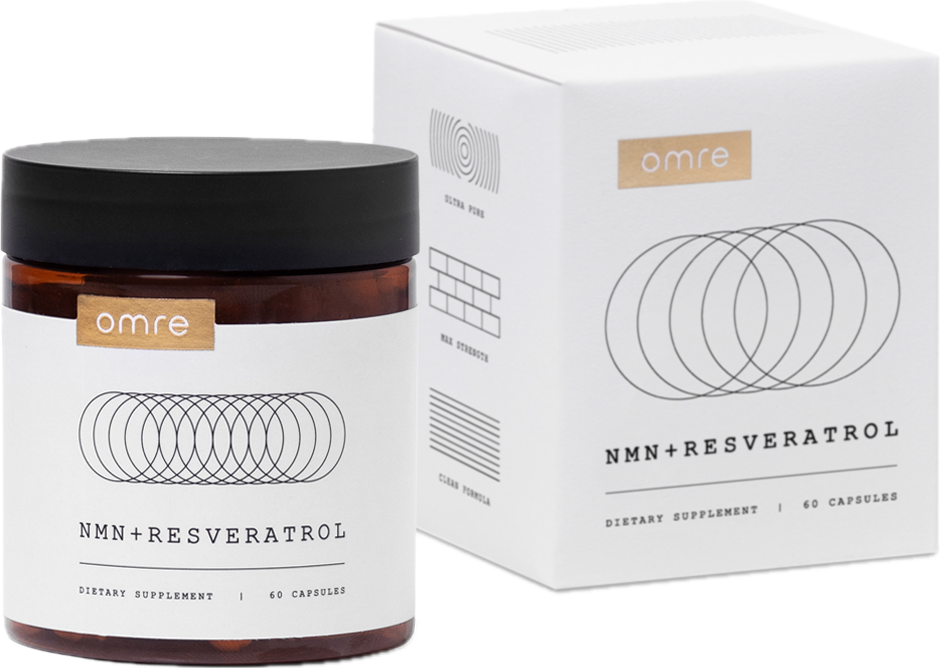Table of Contents
Neuroscientist Dr. Andrew Huberman has openly discussed his full supplement routine across podcasts, interviews, and social media, giving us a clear view into the official Andrew Huberman supplement routine.
While not a one-size-fits-all solution, his stack is aimed at improving brain health, energy, hormone balance, and recovery.
Here’s Andrew Huberman’s updated supplement stack for 2025:
-
NMN: 1–2 g
-
NR (Nicotinamide Riboside): 500 mg
-
Tongkat Ali: 400 mg
-
Fadogia Agrestis: 600 mg, taken in cycles
-
Zinc: 15 mg
-
Boron: 2–4 mg
-
Magnesium L-threonate: 140 mg
-
L-Theanine: 100–300 mg
-
Apigenin: 50 mg
-
Omega-3 fatty acids: 2–3 g EPA
-
L-Glutamine: 1 g
-
Creatine Monohydrate: 5 g
-
Vitamin D3: 5,000–10,000 IU
-
Grapeseed Extract: 400–800 mg
-
Multivitamin: 1 serving daily
These supplements make up Andrew Huberman's daily supplements, which he often adjusts based on his sleep quality, stress levels, or training demands.
Cellular NAD+ booster with ultra-pure NMN and Resveratrol, at research-backed doses.*NMN + RESVERATROL
Supplements for Energy and Longevity
When it comes to staying sharp and feeling energized, Dr. Huberman focuses heavily on cellular health and brain function. These core products form the backbone of Andrew Huberman's longevity supplements for energy, resilience, and long-term wellness.
1. NMN (Nicotinamide Mononucleotide) – 1–2 g
NMN is one of Huberman’s go-to supplements for cellular energy and healthy aging. It helps increase levels of NAD+, a coenzyme that’s central to metabolism and mitochondrial function. NAD+ levels drop as we age, which may affect how well our cells repair themselves.
Huberman explained on an episode of the Huberman Lab Podcast that NMN “may help with mitochondrial efficiency and overall cellular vitality.”
Some animal studies have shown NMN improves endurance and insulin sensitivity (1). However, research in humans is still developing.
He typically takes NMN in the morning and sometimes combines it with NR.
2. NR (Nicotinamide Riboside) – 500 mg
NR is another NAD+ precursor that Huberman occasionally uses alongside NMN. Some studies, including one in Nature Communications, show NR can help raise NAD+ levels safely in humans (2).
Huberman alternates between NR and NMN depending on how his body feels or if he's experimenting with sleep and energy optimization.
3. Omega-3 Fatty Acids – 2–3 g EPA
Omega-3s are non-negotiable in his stack, but with a specific focus on EPA (eicosapentaenoic acid). He stresses the importance of not just taking “fish oil,” but making sure it contains high EPA, which supports mood, cognition, and inflammation control.
“Most people get way too little EPA. I aim for about 2 to 3 grams per day,” he noted.
This is backed by research in JAMA Network Open, showing that EPA supplementation may reduce depression symptoms and support cognitive performance (3).
4. Creatine Monohydrate – 5 g
Creatine isn’t just for gym rats. It plays a key role in energy production, especially in the brain. Huberman takes 5 grams every day, even on non-training days.
He says it's one of the most well-researched and effective supplements for both physical and mental performance.
Studies in Psychopharmacology have shown that creatine may improve working memory and reduce fatigue during mentally demanding tasks (4).
5. L-Glutamine – 1 g
L-glutamine helps with gut lining repair, muscle recovery, and neurotransmitter balance. While not the flashiest supplement, Huberman includes 1 gram daily, especially when under stress or during intense training phases.
Supplements to Support Testosterone and Hormonal Health
Dr. Huberman regularly discusses natural ways to support testosterone without relying on synthetic hormones. These supplements help modulate hormone levels, reduce stress, and support reproductive health.
6. Tongkat Ali – 400 mg
Tongkat Ali, also known as Longjack, has been studied for its effects on stress hormones and testosterone. One study in the Journal of the International Society of Sports Nutrition found that 400 mg daily improved testosterone levels and mood in stressed men (5).
“It works through the HPG axis — hypothalamus to pituitary to gonads,” Huberman explained, meaning it encourages the body to produce its own testosterone.
He takes it in the morning and cycles it on and off every few weeks.
7. Fadogia Agrestis – 600 mg, cycled
Fadogia is less studied but often paired with Tongkat Ali in Huberman’s protocol. He uses it cautiously, cycling on and off due to the limited human data. It may help stimulate luteinizing hormone, which then tells the body to make more testosterone.
He’s careful to monitor for side effects and reminds listeners to talk to a doctor before trying anything new, especially lesser-known herbs.
8. Zinc – 15 mg
Zinc supports immune health, sperm quality, and testosterone synthesis. Huberman takes 15 mg daily, especially when physically active. He warns not to overdo it since too much zinc can mess with copper levels.
Clinical studies have shown that zinc supplementation can restore testosterone levels in zinc-deficient men (6).
9. Boron – 2–4 mg
Boron has some small but interesting studies suggesting it may help free up more active testosterone by reducing SHBG (sex hormone-binding globulin). Huberman takes 2 to 4 mg based on diet and exercise load.
Some research also links boron to better joint health and bone density, adding to its appeal for men over 30 (7).
Supplements for Stress, Sleep, and Mental Focus
Managing stress and improving sleep quality are huge priorities in Huberman’s daily routine. He often refers to the parasympathetic nervous system and how these supplements help “shift gears” from alertness to calm.
10. Magnesium L-threonate – 140 mg
This unique form of magnesium crosses the blood-brain barrier and supports cognitive performance and relaxation. Huberman takes 140 mg in the evening as part of his wind-down routine.
Animal studies from MIT have shown that magnesium threonate increases synaptic density and memory retention (8). While human research is ongoing, many report clearer thinking and better sleep with this form.
11. L-Theanine – 100–300 mg
L-theanine is known for smoothing out caffeine jitters and enhancing calm focus. Huberman uses it flexibly, lower doses in the morning with coffee and higher doses at night if he's trying to relax.
He’s mentioned how it helps promote alpha brain waves, leading to that “alert but relaxed” feeling, a state many associate with flow.
12. Apigenin – 50 mg
Found in chamomile, apigenin is part of what Huberman calls his “sleep cocktail.” It promotes GABA activity in the brain, helping ease into sleep without grogginess.
“I use magnesium threonate, apigenin, and sometimes theanine at night — that combination helps me wind down naturally,” he said.
NMN + RESVERATROL
Cellular NAD+ booster with ultra-pure NMN and Resveratrol, at research-backed doses.*
Immune and General Health Support
While most of his stack supports performance or recovery, these help cover the basics, supporting immunity, antioxidant protection, and filling in any nutritional gaps.
13. Vitamin D3 – 5,000 to 10,000 IU
Vitamin D3 plays a big role in immune health, bone strength, and hormone balance. Huberman tracks his blood levels and adjusts his dose seasonally, typically aiming for 5,000 to 10,000 IU.
Studies in BMJ and other journals show that people with adequate Vitamin D levels have better immune responses and a lower risk of respiratory illness (9).
14. Grapeseed Extract – 400–800 mg
This antioxidant-rich supplement is included for heart and brain protection. Huberman likes its ability to support circulation and reduce oxidative stress, especially after hard workouts or travel.
It contains proanthocyanidins, compounds that may protect blood vessels and reduce inflammation, according to small trials.
15. Multivitamin – 1 daily serving
Even with a clean diet, Huberman takes a multivitamin to cover the bases. He’s noted that during busy or stressful periods, it’s a practical backup for days when food quality isn’t perfect.
“Supplements shouldn’t replace good habits, but they can help support them,” he’s said repeatedly.
What He Says About Supplement Safety
-v1746481614578.webp) Dr. Huberman is very clear about one thing: supplements are not a replacement for healthy habits. He often reminds his audience that sleep, exercise, and nutrition come first. If those areas are lacking, no pill will make up for it.
Dr. Huberman is very clear about one thing: supplements are not a replacement for healthy habits. He often reminds his audience that sleep, exercise, and nutrition come first. If those areas are lacking, no pill will make up for it.
He also emphasizes the importance of blood testing and self-monitoring. “Get your blood work done before starting any new supplement. See where you’re deficient, and then build from there,” he’s said on several podcast episodes.
He doesn't recommend blindly copying someone else’s routine.
Another key message from Huberman is to avoid megadosing unless there’s a good reason. With vitamins and minerals, especially, more isn’t always better.
Some nutrients can build up over time and cause imbalances or side effects. That’s why he sticks to science-backed dosages and pays attention to how his body responds.
He also encourages listeners to consult their healthcare providers, especially when mixing supplements with medications or managing chronic conditions. Supplements can be powerful tools, but they work best when used wisely.
Should You Follow Andrew Huberman’s Supplement Routine?
 It’s tempting to want to copy everything Dr. Huberman does, after all, he’s a neuroscientist with access to cutting-edge research. But even he admits that his stack isn’t meant to be a universal blueprint.
It’s tempting to want to copy everything Dr. Huberman does, after all, he’s a neuroscientist with access to cutting-edge research. But even he admits that his stack isn’t meant to be a universal blueprint.
What works for him might not work for you. His stack is built around his personal health goals, stress levels, training routines, and genetics. That’s why he always tells people to “start with your goals, then see what the science says.”
For example, if you’re not struggling with sleep, you might not need apigenin or magnesium threonate.
If your testosterone levels are fine, you likely don’t need to cycle herbs like Fadogia or Tongkat Ali. The better approach is to look at your own lifestyle and identify where support is needed.
And finally, it’s okay to start small. Even Huberman didn’t add all of these at once. Begin with one or two supplements, see how you feel, and go from there.
Conclusion
Andrew Huberman’s 2025 supplement stack reflects years of research, personal experimentation, and a deep understanding of human biology.
His routine focuses on brain health, hormone balance, sleep, and cellular energy, offering insight into what supplements Andrew Huberman takes to support his performance and well-being.
From NAD+ precursors like NMN and NR to calming agents like apigenin and theanine, the stack is designed to support performance, recovery, and longevity.
That said, it's always best to treat supplements as part of a bigger health strategy, not a shortcut. Think of them as small tools to fine-tune your engine, not fuel for the whole system.
If you're looking to support your own energy and aging process, one good place to begin is with NAD+ precursors. Our NMN + Resveratrol formula is carefully crafted to help support healthy mitochondria and cell repair, two areas Huberman often talks about.
 You can check availability whenever you’re ready to take the first step.
You can check availability whenever you’re ready to take the first step.





